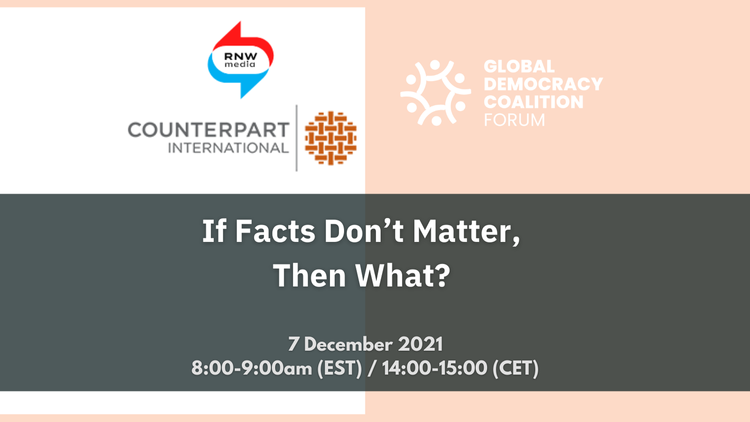Central to the challenges facing world democracies is the breakdown in the information order, manifested in the ubiquity of mis-, dis-, and mal-information (MDM). Efforts to mitigate MDM, and thereby reestablish information integrity, are predicated on the assumption the disorder is only a sub-element of a still-functioning and mostly trustworthy information ecosystem.
What if this assumption is wrong? What if our information technology, and the information ecosystem it has spawned, has permanently overtaken our ability to arbitrate what is legitimate, authentic, and truthful? What if the core threat to democratic governance is now the inability to agree on truths sufficiently to maintain civil discourse and reconcile citizen differences? What if the new reality is a post-fact world?
Globally we continue to deploy a set of countermeasures and institutional interventions to stem the spread of MDM – on the assumption the traditional expectations of information integrity will hold – yet the problem remains persistent and pervasive. We can double down on what we have been doing or step back and reassess. Reassessing means checking our assumptions about the current information order and the requirements for democratic discourse. It means rethinking the reasons for and potential remedies to MDM.
AGENDA
Moderator: Bruce Sherman, RNW Media
DISCUSSION PANEL
Susan Abbott, Counterpart International
Slobodan Blagovcanin, Coordinator, Citizens Against Terrorism (CAT), Tuzla, Bosnia and Herzegovina
Marius Dragomir, Director Center for Media, Data and Society, Central European University
Adam Kaplan, Independent Consultant
Jacqueline Lampe, CEO, RNW Media
Vukasin Petrovic, Chief of Party, Information Access Fund
Discussion Thesis/Focus
We have evolved into a post-fact world that necessitates rethinking our assumptions and remedies regarding countering mis-, dis-, and mal-information (MDM) and ultimately mediating differences in democratic societies.
Discussion Questions
(1) Is the thesis right, that stressing facts alone will not suffice?
(2) If so, what will else can/must content creators and media do?
(3) Is a new area of practice for media warranted – a practice that uses non-traditional means of informing and engaging citizens to enable productive discourse?

